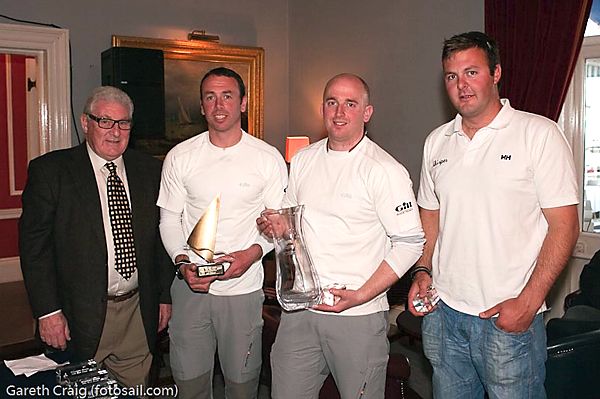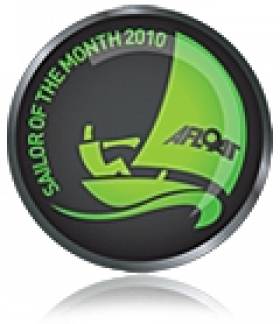Displaying items by tag: Gareth Flannigan
Gareth Flannigan is April's Sailor of the Month
Gareth Flannigan of Ballyholme is the Afloat.ie/Irish Independent “Sailor of the Month” for April after rising through the 43-strong fleet at last weekend’s busy East Coast SB3 Championship in Dublin Bay.
Mobility was the core concept for the 20ft SB3 as Laser International and designer Tony Castro brainstormed their way in 2002 towards a lifting-keel easily-trailed performance three-four man boat which would capture the spirit of the original iconic Laser single handed dinghy.
While there are many SB3s based in the Dublin area, nevertheless the very competitive fleet seemed to emerge from nowhere and from every corner of Ireland onto the forecourt of the Royal St George YC for this, the class’s first major event of the 2010 season.
Expat Kiwi skipper Ben Duncan, who sails from Howth, was the overnight leader and seemed securely in place. But through the second day defending title-holder Gareth Flannigan of Belast Lough implemented a strategy which saw Duncan’s points lead eroded and then bested.
With a team which included Stephen Milne who has recently launched himself onto the Olympic path with Cork’s Peter O’Leary in the Olympic Star, Flannigan cannily kept tabs on Duncan while keeping himself in the frame. His discard from Sunday’s three races was a 7th, while Duncan went down the tubes with a 19th and 18th in the two final jousts, after starting the day with a useful second.
In fact, it was Adrian O’Connell of the host club who showed best overall on Day Two, but Flannigan moved into a convincing overall lead, finishing on 15 points to the 24 of Duncan and O’Connell’s 26. It was a virtuoso performance which makes him a worthy winner of the monthly award, and it means Stephen Milne is right on line for an Oscar for best supporting actor – he has already been in lights for the second place in the Olympic Stars in Miami with Peter O’Leary in February.
Photo below: Gareth Flanningan (second fron left) and his crew received their award from Frank Keane of Mistubishi Motors. Photo: Gareth Craig More photos here.































































